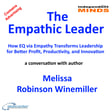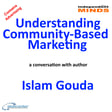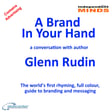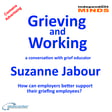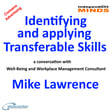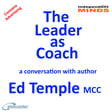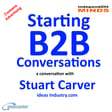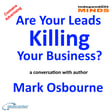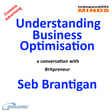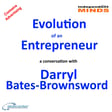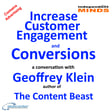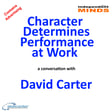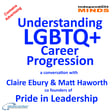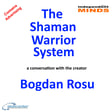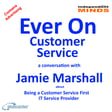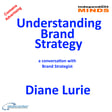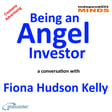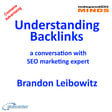
Creating Safe Places for Performance Management – a conversation with Tobey Wyatt
Tobey Wyatt is the founder of Motherlode, a CEO advisory company, based in Chicago, USA.
Tobey had a career as a HR generalist becoming a CEO adviser.
In this episode of the Abeceder podcast The Independent Minds, host Michael Millward how the role of CEO adviser involves focusing on one aspect of the role of HR professionals within organisations.
Tobey and Michael discuss the challenges of being a business founder or a CEO and the problems that employees face when their CEO fairs to successfully address these challenges.
Focusing on just one aspect of management, performance management they explore what a CEO needs to do to create an organisational culture and individual relationships that will enable managers and their team members to have constructive performance related conversations.
More information about Tobey Wyatt and Michael Millward is available at abeceder.
Audience Offers
The Independent Minds is made on Zencastr, because as the all-in-one podcasting platform, Zencastr really does make creating content so easy.
If you would like to try podcasting using Zencastr visit zencastr.com/pricing and use our offer code ABECEDER.
Travel
With discounted membership of the Ultimate Travel Club, you can travel anywhere else at trade prices on flights, hotels, trains, and many more travel related purchases.
Fit For Work Look after your health and you will be fit for work.
No point in being in a great job if you are in poor health. That is why we recommend The Annual Health Test from York Test; a 39-health marker Annual Health Test conducted by an experienced phlebotomist with hospital standard tests carried out in a UKAS-accredited and CQC-compliant laboratory.
A secure Personal Wellness Hub provides easy-to-understand results and lifestyle guidance
Visit York Test and use this discount code MIND25.
Three the network Visit Three for information about business and personal telecom solutions from Three, and the special offers available when you quote my referral code WPFNUQHU.
Being a Guest
We recommend the podcasting guest training programmes available from Work Place Learning Centre.
We use Matchmaker.fm to connect with potential guests If you are a podcaster looking for interesting guests or if you have something interesting to say Matchmaker.fm is where great guests and great hosts are matched and great podcasts are hatched. Use our offer code MILW10 for a discount on membership.
We appreciate every like, download, and subscriber.
Thank you for listening.

